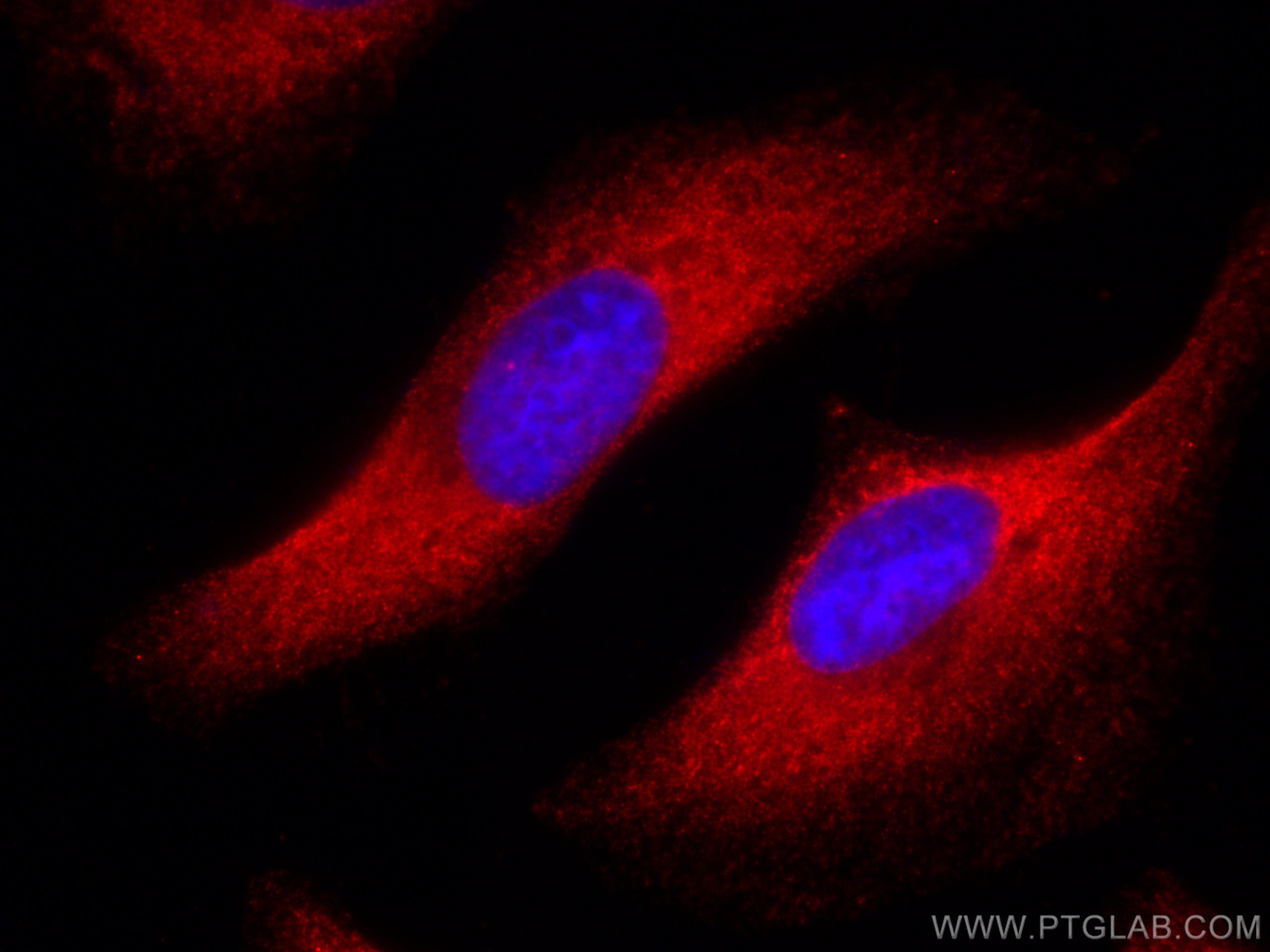Validation Data Gallery
Tested Applications
| Positive IF/ICC detected in | HeLa cells |
Recommended dilution
| Application | Dilution |
|---|---|
| Immunofluorescence (IF)/ICC | IF/ICC : 1:50-1:500 |
| It is recommended that this reagent should be titrated in each testing system to obtain optimal results. | |
| Sample-dependent, Check data in validation data gallery. | |
Product Information
CL594-66591 targets FASN in IF/ICC applications and shows reactivity with Human samples.
| Tested Reactivity | Human |
| Host / Isotype | Mouse / IgG1 |
| Class | Monoclonal |
| Type | Antibody |
| Immunogen | FASN fusion protein Ag0975 相同性解析による交差性が予測される生物種 |
| Full Name | fatty acid synthase |
| Calculated molecular weight | 272 kDa |
| Observed molecular weight | 272 kDa |
| GenBank accession number | BC007909 |
| Gene Symbol | FASN |
| Gene ID (NCBI) | 2194 |
| RRID | AB_2920012 |
| Conjugate | CoraLite®594 Fluorescent Dye |
| Excitation/Emission maxima wavelengths | 588 nm / 604 nm |
| Form | Liquid |
| Purification Method | Protein G purification |
| UNIPROT ID | P49327 |
| Storage Buffer | PBS with 50% glycerol, 0.05% Proclin300, 0.5% BSA{{ptg:BufferTemp}}7.3 |
| Storage Conditions | Store at -20°C. Avoid exposure to light. Stable for one year after shipment. Aliquoting is unnecessary for -20oC storage. |
Background Information
FASN gene codes for an enzyme essential for de novo fatty acid synthesis and cellular substrate energy metabolism. Active FASN is a homodimer in which each peptide subunit has a molecular weight of 260 kDa. FASN is overexpressed in various types of cancer including glioblastomas and is a potential therapeutic target. Recently FASN has been reported to contribute to the neurogenesis since FASN mutation caused intellectual disability in mice.
Protocols
| Product Specific Protocols | |
|---|---|
| IF protocol for CL594 FASN antibody CL594-66591 | Download protocol |
| Standard Protocols | |
|---|---|
| Click here to view our Standard Protocols |
